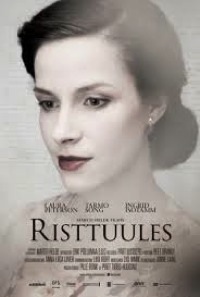Capturing History Through the Art of Tableau
 Despite only having a couple of short films under his belt, Estonian director Martti Helde’s feature film debut, In the Crosswind, has the assuredness and certainty of a work crafted by someone well-versed in the cinematic medium. It has a clear vision and intent, never deviating from its central focus of capturing a time in history—when thousands of Estonians, Latvians and Lithuanians were taken from their homes and placed in Siberian labour camps by the USSR military—feeling concise and planned on every front. But, to be fair, it’s also a filmed gimmick; it’s a well-conceived and thought-provoking gimmick but a gimmick nonetheless.
Despite only having a couple of short films under his belt, Estonian director Martti Helde’s feature film debut, In the Crosswind, has the assuredness and certainty of a work crafted by someone well-versed in the cinematic medium. It has a clear vision and intent, never deviating from its central focus of capturing a time in history—when thousands of Estonians, Latvians and Lithuanians were taken from their homes and placed in Siberian labour camps by the USSR military—feeling concise and planned on every front. But, to be fair, it’s also a filmed gimmick; it’s a well-conceived and thought-provoking gimmick but a gimmick nonetheless.
Helde’s guide, which constructs a narrative and heart unto itself, is the diary of Erna (Laura Peterson), a young philosophy student separated from her husband during the 1941 raids. Told in voiceover amidst an array of astonishingly exact—and gorgeous—black and white tableaux that attempt to recreate the images and moments described, her story details physical and psychological abuse, including sexual violation, starvation and the pain of raising a daughter in such a harsh environment.
These words have substantial power on their own, detailing the quotidian hardships of those victimized by basic human xenophobia and bigotry. Spoken softly and with a careful, considered tenderness by Peterson, they have a haunting quality exaggerated by the layered, complex visuals on screen. Accompanying each diary entry is an elaborate tableau with surprising dimension. Helde manoeuvres the camera through dozens of people, each engaged in their own struggle on the same plane, capturing every intimate detail and hidden corner of a single moment in time. This intense scrutiny of each image gives the audience time to digest the material and contemplate what exactly this moment in time means in not only a socio-political context but, more importantly, a human one.
This style also gives an impression of filmed portraiture, having an intense depth to a visual landscape that manages to seize not only the technical aspects of a time in history—the clothes, the props, the geography and so on—but also a sense of stolen, or borrowed, emotions. Since the actors are frozen, we’re able to scrutinize their expressions and what they’re wearing and how they’re standing in a way that conventional film won’t allow. We can analyze the image and what it might mean beyond the basic superficiality of the basic elements comprising a moment. An outreaching hand or a hanging head speaks volumes, giving the audience a freedom in thought that a conventional documentary might not have allowed.
And though this consistency and this tactic is highly effective, giving the apropos gravity to an oft-forgotten past atrocity, it does also make the transition from short film to feature film a tad easier. Since this style is ostensibly a single protracted idea come to life, the main signifiers to consider are chiefly technical, such as camera movement and staging. As such, Helde wasn’t confronted with decisions pertaining to crafting a complex narrative. He’s proven that he can construct a beautiful image and has a very sharp and sensitive eye but only time will tell if he’s also a good storyteller. Regardless, In the Crosswind is a remarkable achievement that is both dignified and timeless.
Reviewed on September 10th Contemporary World Cinema Programme. 87 Minutes
★★★★/☆☆☆☆☆


